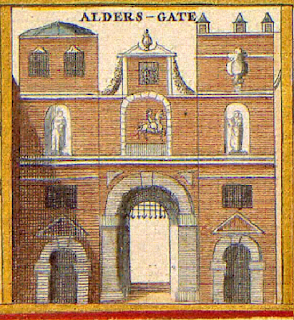This 32-year old Ohioan from East Liverpool had a
few decades ahead of him yet, but still must have been mulling over what would be
inevitable at some point. Will Thompson wrote “Lead Me Gently Home, Father” in
1879, and sounded rather like someone who had had enough of life, even though
he was a relatively young man. Was it some disappointment with struggle he’d
encountered as he began his professional life following college? He reportedly
wrote down words at all times for musical ideas, so this much is sure: Will had
experienced something that was significant enough for him to commit it to paper
on the spot, thinking it would be a meaningful contribution to his spiritual
and musical life. In other words, he
must have thought the Spirit was always present, prompting him in various ways,
even if an incident was downbeat.
Will Lamartine Thompson likely knew from an early
age that he was going to pursue music as his life’s work. He wrote a few songs
as a teenager, including some secular tunes that were popular (“My Home on the Old Ohio" and
"Gathering Shells from the Seashore"). His musical penchant deepened in the 1870s with
his college and post-college training, taking him to New England and Leipzig,
Germany for specialized training in his chosen field. So, it was no doubt
frustrating for him when he hit a speed-bump of sorts – a commercial music publisher
who rejected his efforts. Will was apparently not one to surrender so quickly
however, and he responded by forming his own publishing company. By the 1880s,
the Will L. Thompson Music Company in East Liverpool was serving customers
across the U.S., and must have contributed to Thompson’s formation of a similar
company later in Chicago. But, as a 30-something, the mood of what he wrote in ‘Lead
Me…’ suggests this young music businessman had his share of struggle and
depression, too. This was a guy with his musical antennae active, and
consequently recording poetry that pinpointed what was occurring around and
inside himself. It must have been at least one or perhaps several days that prompted
Will to write about ‘life’s toils’ (v. 1) and ‘darkest hours…(and) troubles’ (v.
2), compelling him to seek a gentle touch from his Father. In fact, ‘gently’ is
Will’s favorite word throughout ‘Lead Me…’, suggesting his terrestrial days had
been pretty rugged at the time.
Will Thompson was not a pity-party unto himself,
though. Life didn’t stop him, though a roadblock was not uncommon in his path.
Rejection from a publisher only fueled Will’s imagination, serving as grist for
his musical mill. How do you suppose he got this attitude? From where did his
musical creativity emanate? Maybe the source was someone else who was likewise
cast aside, at least for a while. That person rose up and became a focal point,
despite other people’s momentary disconsolation. Do you suppose Will noticed
that historical example, too?
See the two sites here for information on the composer and
the song’s original two verses:





